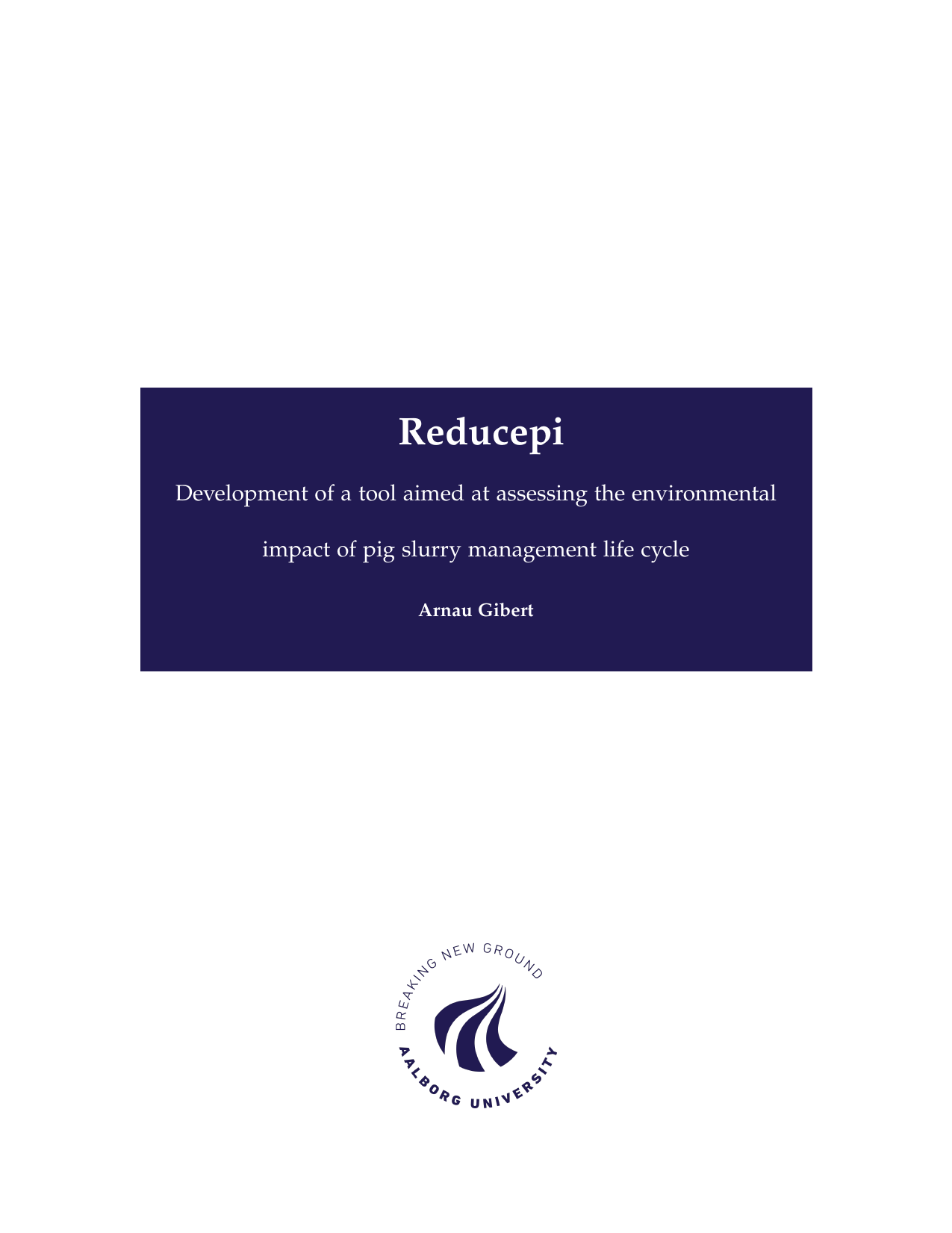
Reducepi: development of a tool aimed at assessing the environmental impact of pig slurry management life cycle.
Translated title
Reducepi: Udvikling af et værktøj med henblik på at vurdere miljøpåvirkningen af livscyklussen for svinegødningshåndtering.
Author
Term
4. Term
Publication year
2024
Submitted on
2024-06-02
Pages
85
Abstract
Svinegylle, et biprodukt af intensiv svineproduktion, udgør en betydelig miljøtrussel på grund af dets høje indhold af næringsstoffer og drivhusgasemissioner. Dette problem er særligt bekymrende i Spanien, et af EU-landene med de største svinebesætninger. Denne situation har skabt behov for at udvikle brugervenlige værktøjer, der muliggør vurdering af de miljømæssige påvirkninger af svinegyllehåndtering uden behov for dybdegående videnskabelig baggrund. I denne specialeafhandling blev et LCA-værktøj af denne art udviklet til at estimere emissioner fra svinegyllehåndtering gennem hele dets værdikæde, fra opbevaring til transport gennem anvendelse af målrettede behandlinger og afslutning med udbringning af de resulterende produkter. Simapro og Excel blev brugt til at modellere alle livscyklusstadier, og data blev indsamlet både fra tilgængelig litteratur og eksperimentelle data, der blev leveret af Reducepi-projektets samarbejdspartnere. Specifikt bestod de eksperimentelle data af sammensætningen af gylle fra grise på 54 kg og 70 kg, der blev fodret med en kontrolfoder (diætbaseret foder) og et alternativt foder (sorghumbaseret foder), og resultaterne blev testet mod tre behandlingsscenarier: anaerob fordøjelse, kompostering og ingen behandling (kontrolgruppe). Resultaterne viste, at for alle de betragtede påvirkningskategorier var komposteringsscenarioet langt den mest påvirkende behandling sammenlignet med anaerob fordøjelse og ingen behandling.
Pig slurry, a byproduct of intensive pig farming, poses a significant environmental threat due to its high nutrient content and greenhouse gas emissions. This issue is particularly concerning in Spain, one of the EU countries with the largest pig herds. This situation has propelled the need to develop user-friendly tools that enable stakeholders to estimate the environmental impacts of the management of pig slurry without requiring a deep scientific background. In this master thesis, a first-of-its-type LCA tool was developed to estimate emissions from pig slurry management thorough all its value-chain, from stor- age to transport through the application of targeted treatments, and finishing with the landspreading of the resulting products. Simapro and Excel were used to model all the life cycle stages, and data was obtained both from available literature and experimental data, which was provided by the Reducepi project collaborators. Specifically, experimen- tal data consisted on slurry composition of pigs of 54 kg and 70 kg fed with a control feed (diet-based feed) and an alternative feed (sorghum-based feed), and results were tested against three treatment scenarios: anaerobic digestion, composting and no treat- ment (control group). Results showed that, for all the impact categories considered, the scenario composting was by far the most impacting treatment compared with anaerobic digestion and no treatment.
Documents
